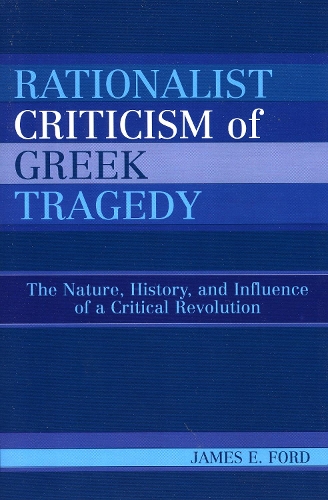
Rationalist Criticism of Greek Tragedy: The Nature, History, and Influence of a Critical Revolution
(Paperback)
Publishing Details
Rationalist Criticism of Greek Tragedy: The Nature, History, and Influence of a Critical Revolution
By (Author) James E. Ford
Bloomsbury Publishing PLC
Lexington Books
14th December 2005
United States
Classifications
Tertiary Education
Non Fiction
Literary studies: ancient, classical and medieval
882.01
Physical Properties
Paperback
128
Width 161mm, Height 228mm, Spine 15mm
259g
Description
Literary critical revolutions-radical shifts in interpretation and evaluation of literary works and their authors-are among the most interesting of cultural phenomena. In order to gain greater understanding of the mechanisms of all critical revolutions, Rationalist Criticism in Greek Tragedy examines the late nineteenth-century "rehabilitation" of Euripides. Some of the factors which contributed to the Euripidean revolution are well known, but one which is not-one which has been generally forgotten, when it has not actually been denied-is the role of Rationalist Criticism. Rationalist Criticism, founded and dominated by infamous Cambridge University Classicist and English scholar A. W. Verrall, was generally deprecated by mainstream classicists when it first appeared, and those who happen to come upon it today tend to treat it dismissively-a tendency the great classicist Eduard Fraenkel thought "should be strongly resisted." The influence of Rationalist Criticism-inside and outside of classical studies-has been much greater than has been generally supposed. James E. Ford makes the case for the larger significance of what Verrall and the Rationalist Critics were doing within the history not just of Euripidean criticism but of literary studies generally. Ford reads the rationalists on their own terms, drawing on the disciplines of the history of scholarship and the history and theory of literary criticism making this study unique. It should appeal to anyone interested in intellectual history, especially instances of significant intellectual changes (a la Kuhnian revolutions), and, especially, changes in the interpretation and evaluation of authors and their works. The work should be of specific interest to classicists, academic historians, and critical theorists.
Author Bio
James E. Ford is an English professor at the University of Nebraska-Lincoln.
